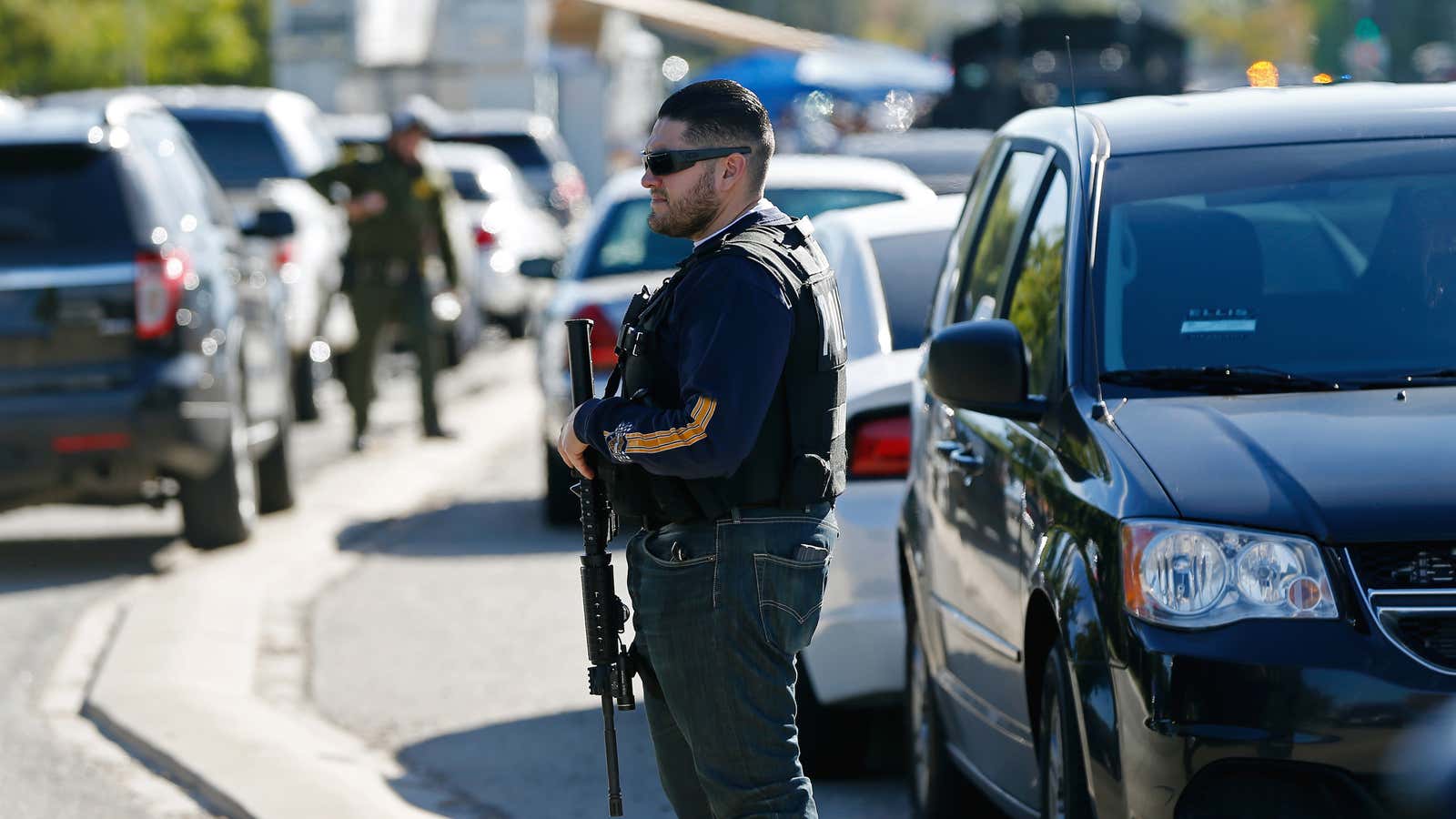Whenever news reports circulate of a violent crime that could be labeled terrorism, Muslims around the world hope and pray that the suspect was not someone of their faith. I’ve found that many Americans can’t understand this trepidation, deeming the response inappropriate at best in the face of a terrible tragedy that’s still unfolding. But those who cannot understand our apprehension have never faced the prospect of collective blame.
Since they have never been demonized, they have no memory–let alone experience–of what collective guilt looks like. Or how it distracts society from the real decisions we have to make to keep ourselves safe.
We didn’t yet know all the details, let alone the motives, of last night’s massacre in San Bernardino. But prominent American Muslim organization Council on American-Islamic Relations is already out the gate, with its Los Angeles division condemning the violence in a bid to prevent the Muslim community for being blamed for the crime.
Several American Muslims I spoke with were upset about this strategy, though they did not want to go on the record. One prominent American Muslim leader, who is also an attorney, described CAIR’s reflexive apology on behalf of American Islam to the actions of Saudi Arabia. He explained: “They claim the legitimacy of all Islam and the mantle of Islam.”
Why, indeed, do Muslims have to collectively apologize?
We don’t yet know if yesterday’s brutal attack was terrorism–defined here as violence against civilians with a political purpose or intention. It may well be. But it almost doesn’t matter at this point. Our definition of terrorism has become lazier and lazier, so that for many terrorism has become synonymous with violence committed by Muslims.
Meanwhile, a lot of white supremacist violence never makes it into mainstream media. When violence committed by white men does make the news, we have a whole range of rhetorical tools to make it seem less threatening. “Lone gunman” is a big one, as is the almost-polite sounding “mass shooting.” (It’s a sad reflection of where we are as a country that we regularly distinguish between “shootings” and “mass shootings.”)
There is no collective guilt when the shooter is a white man, no demand for (Judeo-) Christian accountability. Not in any way that translates into policy, at least, nor otherwise: Armed vigilantes don’t show up outside churches or follow white men down the streets, nor leak their addresses when a Planned Parenthood clinic is attacked.
Instead, pundits and the public target the crime narrowly and compartmentalize it accordingly. Crime happens everywhere and is nobody’s fault, they say. What can you do?
We don’t wonder about the deeper roots behind violence by white men, or about the cultural, religious or political ideologies that might be to blame. We don’t reshape domestic or foreign policy. At best we offer up our collective prayers, which is our way of saying that we don’t want to change.
Hypocrisy abounds in modern culture, but this is an especially damaging kind.
Compare the aftermath of last week’s Planned Parenthood shooting with fallout from the Paris attacks. Already mosques in Paris have been put under surveillance and even closed. In the US, the Paris attacks sparked talk of special identification for Muslims and closing the border to Syrian refugees.
That’s a double standard. It’s also indicative of how easy it is for right-wing politicians to blame Muslims generally instead of actually doing something constructive in the face of gun violence perpetuated, far more often than not, by white Americans.
Prayers are not enough either. We must first assign guilt where it belongs: With individuals and with their preferred tools. With whose who actively and specifically assisted the attackers. We must study policy and determine how to stop or reduce such crime via tighter gun control and other measures.
The key to making the US safer is not to give out more guns and hope and pray for the best. I refuse to believe that our only option is to go about our daily lives feeling as if, at any moment, someone may attack us. What kind of lives would we be living?
Today, Muslims in California and across the country woke up with a familiar sense of dread. But this is a problem that involves all kinds of Americans. There have now been more mass shootings in 2015 than days of the year. Whether the criminal is a Muslim or a Christian, at a school or a party, at a campus or a clinic, we can at least make it harder for those who want to do harm to carry out their plans.
That should be our focus.




